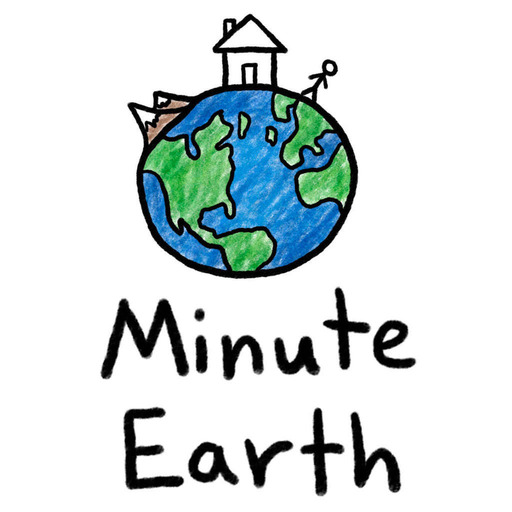Farming erodes soil 50 times faster than it forms. We can change that, but will we? Thanks to http://www.soylent.com/earth for sponsoring this video! Thanks also to our supporters on https://www.patreon.com/MinuteEarth : - Today I Found Out - Maarten Bremer - Jeff Straathof - Mark Roth - Tony Fadell - Muhammad Shifaz - 靛蓝字幕组 - Melissa Vigil - Alberto Bortoni - Valentin - Antoine Coeur ___________________________________________ Credits (and Twitter handles): Script Writer: Alex Reich (@alexhreich) Script Editor: Rachel Becker (@RA_Becks) Video Illustrator: Ever Salazar (@eversalazar) Video Director: Kate Yoshida (@KateYoshida) Video Narrator: Kate Yoshida (@KateYoshida) With Contributions From: Henry Reich, Omkar Bhagat, Emily Elert, Peter Reich, David Goldenberg Music by: Nathaniel Schroeder: http://www.soundcloud.com/drschroeder _________________________________________ Like our videos? Subscribe to MinuteEarth on YouTube: http://goo.gl/EpIDGd Get early, exclusive access to our videos on Vessel: https://goo.gl/hgD1iJ Support us on Patreon: https://goo.gl/ZVgLQZ Also, say hello on: Facebook: http://goo.gl/FpAvo6 Twitter: http://goo.gl/Y1aWVC And find us on itunes: https://goo.gl/sfwS6n ___________________________________________ If you liked this week’s video, we think you might also like these things: America is running out of soil: http://goo.gl/FXEzeR Global Soil Partnership: http://goo.gl/lqGknM Prairie STRIPS research: https://goo.gl/1uw1Yg FYI: We try to leave jargon out of our videos, but if you want to learn more about this topic, here are some handy keywords to get your googling started: Agricultural Soil Erosion: the wearing away of a field's topsoil by the natural physical forces of water and wind or through forces associated with farming activities, such as tillage. http://goo.gl/d0Ciwk Conservation tillage/agriculture: a soil cultivation method in which fields are not ploughed & the previous year's crop residues are left on fields before and after planting the next crop, to reduce soil erosion and runoff. http://goo.gl/8aoizx, http://goo.gl/jmj8Ic Soil: the upper layer of earth, in which plants grow; a dark, damp, gas-filled structure of minerals and organic matter formed by degrading rocks and decomposing organisms. http://goo.gl/Q6JOrH ___________________________________________ References: A Landowner’s Guide to Prairie Conservation Strips. Accessed May 5, 2016. https://goo.gl/fN65MA Antón, S. C., & Steadman, D. W. (2003). Mortuary patterns in burial caves on Mangaia, Cook Islands. International Journal of Osteoarchaeology, 13(3), 132-146. http://goo.gl/SIiMxy FAO and ITPS. (2015). Status of the World’s Soil Resources (SWSR) – Main Report. Food and Agriculture Organization of the United Nations and Intergovernmental Technical Panel on Soils, Rome, Italy. http://goo.gl/fxPJi0 Kirch, P. V. (1997). Microcosmic histories: Island perspectives on" global" change. American Anthropologist, 99(1), 30-42. Montgomery, D. R. (2007). Soil erosion and agricultural sustainability. Proceedings of the National Academy of Sciences, 104(33), 13268-13272. http://goo.gl/Si9E6g Pimentel, D. (2006). Soil erosion: a food and environmental threat. Environment, development and sustainability, 8(1), 119-137. http://goo.gl/64FSCa Soil Building Systems. Pickup Truck Capacities. Accessed May 5, 2016. http://goo.gl/u7sPfQ Steadman, D. W., Antón, S. C., & Kirch, P. V. (2000). Ana Manuku: a prehistoric ritualistic site on Mangaia, Cook Islands. Antiquity, 74(286), 873-883. http://goo.gl/ZySytn
Publié le par Neptune Studios
Les podcasts externes de ce site sont récupérés à partir de liens publics (Feed XML/RSS) qui nous ont été fournis par nos utilisateurs ainsi que des partenaires. Ce podcast m'appartient.


 Education
Education